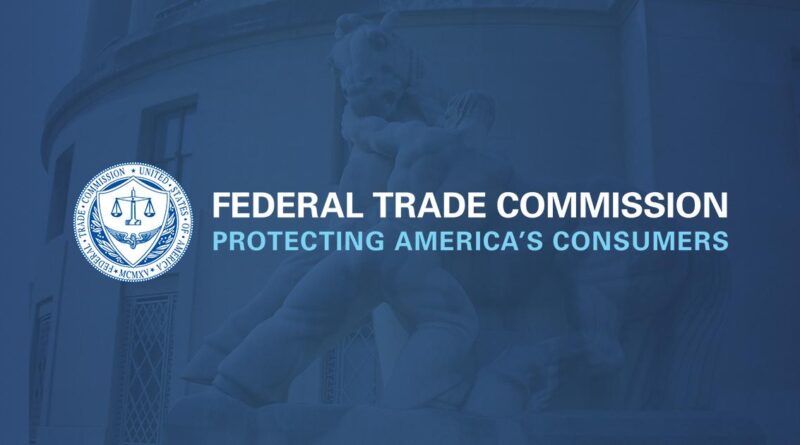FTC releases Report on Temporary Agents on Drug Middlemen
The Federal Trade Commission today released an interim report on the prescription drug industry that highlights the influence that pharmacy benefit managers (PBMs) have on the availability and availability of prescription drugs. the doctor.
The part-time worker report, which is part of an ongoing investigation launched in 2022 by the FTC, provides details on how increased vertical integration and focus has helped six PBMs large to control nearly 95 percent of all prescriptions filled in the United States.
This well-integrated and concentrated market structure has allowed PBMs to profit at the expense of patients and private entrepreneurs, the report notes.
«The FTC’s interim report shows how drug benefit executives can drive up drug prices—including by charging patients more for cancer drugs,» said FTC Chairwoman Lina M. Khan. «The report also details how PBMs can suppress the private pharmacies that many Americans — especially those in rural areas — rely on for essential care. The FTC will continue to use all of our resources and officials to scrutinize the dominant players across the health care markets and ensure that Americans have access to affordable health care.»
The report finds that PBMs have significant power over patients’ ability to find and buy their prescription drugs, allowing PBMs to significantly influence what drugs are available and at what price. This can have negative consequences, with nearly 30 percent of Americans surveyed reporting overdosing or even skipping prescribed medications because of high costs, the report says.
The interim report also finds that PBMs have significant influence over independent pharmacies by imposing unfair, onerous, and harmful agreements that can affect independent pharmacies’ ability to stay in business and to serve their community.
The Commission’s interim report stems from special orders the FTC issued in 2022, under Section 6(b) of the FTC Act, to six large PBMs—Caremark Rx, LLC; Express Scripts, Inc.; OptumRx, Inc.; Humana Pharmacy Solutions, Inc.; Prime Therapeutics LLC; and MedImpact Healthcare Systems, Inc. In 2023, the FTC issued additional orders to Zinc Health Services, LLC, Ascent Health Services, LLC, and Emisar Pharma Services LLC, each of which are discount aggregators, also known as «group purchasing organizations,» who negotiate drug discounts on behalf of PBMs.
PBMs are part of the complex healthcare network, and the PBM industry is highly concentrated. As shown in the figure below, this concentration and integration gives them significant power over the pharmaceutical supply chain. The percentages show the number of prescriptions filled in the United States. .
The interim report highlights several key facts gathered from documents and data obtained from FTC subpoenas, as well as publicly available information:
- Direct and indirect connection: The market for pharmacy benefit management services has become highly concentrated, with the largest PBMs now integrated with the nation’s largest health insurers and specialty pharmacies. and retail.
- The top three PBMs handled nearly 80 percent of the nearly 6.6 billion prescriptions dispensed by US pharmacies by 2023, while the top six handled more than 90 percent.
- Pharmacies affiliated with the three largest PBMs now account for 70 percent of specialty drug revenue.
- Power and influence: Because of this high level of integration and vertical integration, leading PBMs now exercise greater control over Americans’ ability to find and purchase their prescription drugs.
- The largest PBMs often have greater control over which drugs are available and at what price, and which pharmacies patients can use to get their prescriptions.
- PBMs oversee these important decisions about access and pricing of life-saving drugs, without transparency or accountability to the public.
- The act of self-selection: Directly integrated PBMs appear to have the ability and incentive to co-opt their affiliated businesses, creating conflicts of interest that can harm unaffiliated pharmacies and increase prescription drug costs.
- PBMs may direct patients to their affiliated pharmacies and away from small independent pharmacies.
- These practices have allowed the chemicals affiliated with the big three PBMs to keep more revenue than their drug price premiums, including more than $1.6 billion in revenue from just two cancer drugs during the period. three years old.
- Unfair contract terms: Evidence suggests that increased concentration gives leading PBMs the power to enter into contractual relationships that disadvantage smaller, unrelated pharmacies.
- Fees in PBM and independent pharmacy contracts often do not clearly reflect the total amount of fees, making it difficult or impossible for pharmacists to know how much they will be paid.
- Efforts to reduce access to low-cost competitors: PBMs and generic drug manufacturers negotiate discounts on prescription drugs, some of which are clearly set to limit access to potentially lower-cost competitors and biosimilars.
- Evidence suggests that PBMs and generic drug manufacturers sometimes enter into agreements to exclude lower-priced competitive drugs from the PBM’s formulary in exchange for additional discounts from to the producers.
The report shows that a number of PBMs that have been mandated have not received their responses on time, and have not yet completed their required disclosures, which has prevented the Commission from its legal function. FTC staff demanded that the companies end their products as required by the 6(b) orders immediately. However, if any of the companies fails to fully comply with Section 6(b) or engages in delaying tactics, the FTC may take to the district court to compel compliance.
The FTC remains committed to providing timely updates as the Commission receives and evaluates additional information.
The commission voted 4-1 to allow staff to submit an interim report, while Commissioner Melissa Holyoak voted no. Chairwoman Lina M. Khan delivered a statement joined by Commissioners Rebecca Kelly Slaughter and Alvaro Bedoya. Commissioners Andrew N. Ferguson and Melissa Holyoak each issued separate statements.
#FTC #releases #Report #Temporary #Agents #Drug #Middlemen
